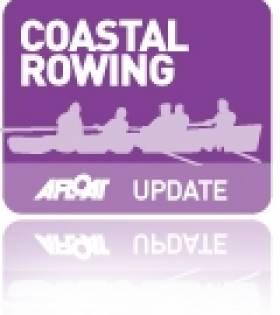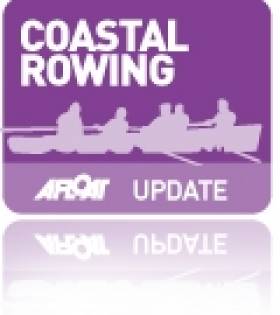Displaying items by tag: World Ocean Rowing
Rowers Pass Halfway Point in Atlantic Record Attempt
The Sara G and her crew are less than 1,000 miles from Barbados in their attempt to break the world record for the fastest Alantic crossing by an ocean rowing boat.
As previously reported by Afloat.ie, the six-man crew - featuring Irishmen Adam Langton Burke and Rob Byrne - set out from Morocco on 5 January.
And there is already some cause for celebration, as perfect conditions along the route so far have helped the team break another record - that of 10 consecutive days of more than 100 rowed each day.
Click HERE to track the crew's live progress across the Altantic.
Ocean Rowers Begin Atlantic Record Attempt
The crew of the Sara G have begun their latest attempt on the world record for the fastest crossing of the Atlantic by an ocean rowing boat.
The six-man crew - skippered by Sara G owner Matt Craughwell and featuring Irishmen Adam Langton Burke from Skerries and Bray native Rob Byrne - set off from Tarfaya in Morocco on Wednesday afternoon, headed for Barbados.
The 11.1m boat has a storied history, smashing the record for the fastest row across the Tasman Sea from New Zealand to Australia with its previous owner Steven Gates.
Last year the Sara G crossed the Atlantic for the first time from Agadir to Barbados in 57 days, 20 hours. This year's crew must beat a time of 38 days, 1 hour and 22 minutes to take the record held by Team La Mondiale since 2008.
Rowing southwest to take advantage of the trade winds, the Sara G is presently off the coast of north-west Africa near the Canary Islands.
Click HERE to track the crew's live progress across the Atlantic.

























































